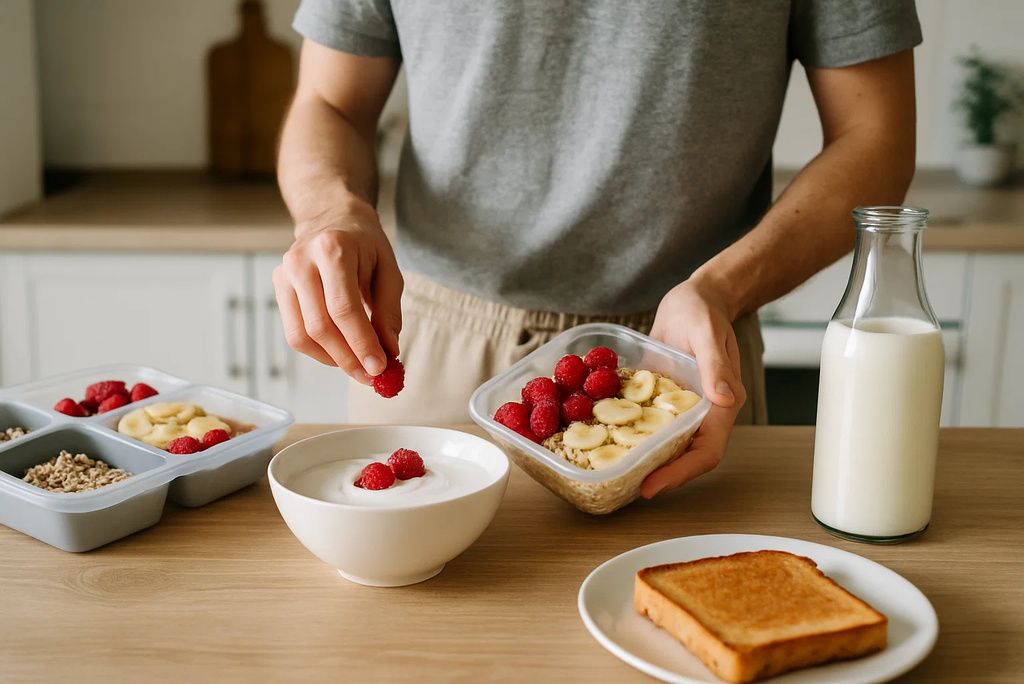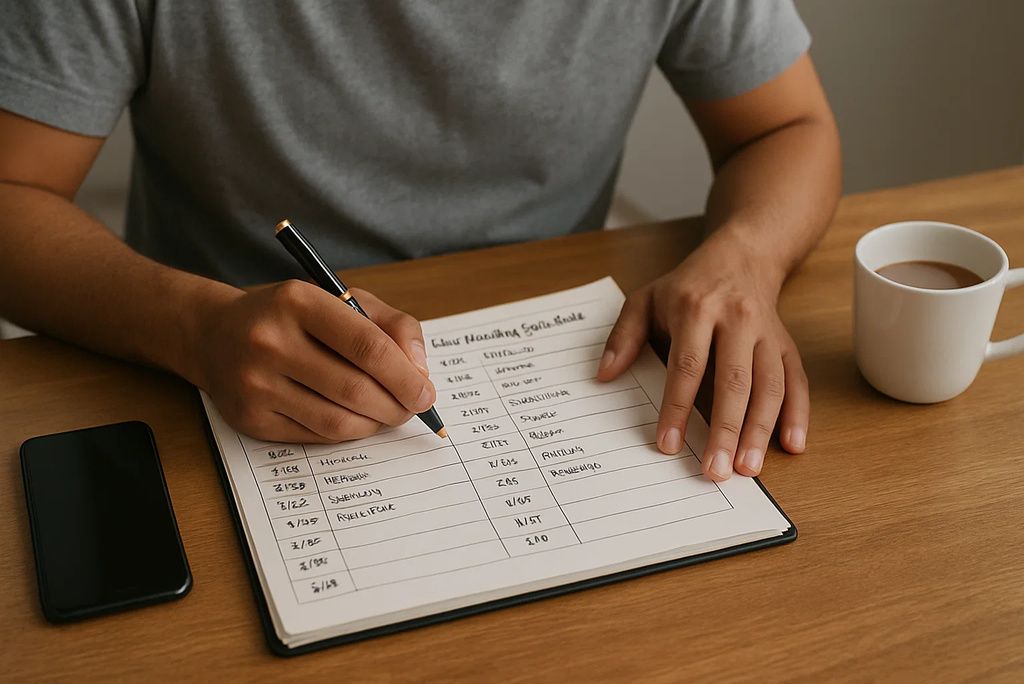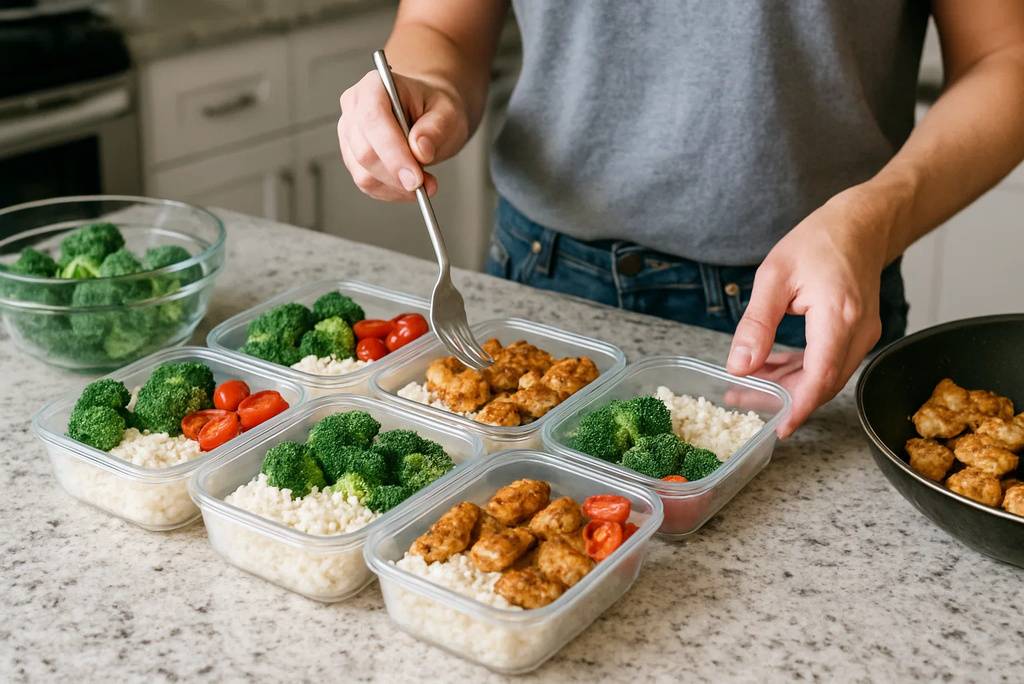Mornings often set the tone for the rest of the day, yet they’re also when most people feel rushed and unprepared. Streamlining your routine not only saves time but also reduces stress, improving overall productivity and mental clarity.
Implementing a well-structured morning strategy can help you make the most of your day without sacrificing essential tasks or personal well-being. From preparing the night before to adopting small yet impactful habits, the right approach can turn your mornings into an energizing start rather than a frantic scramble.
1. Prepare Your Outfit the Night Before

Choosing what to wear in the morning often takes longer than expected. Setting out your outfit the night before eliminates decision fatigue and speeds up your routine. This practice also ensures your clothes are clean, ironed, and appropriate for the day’s events, which can prevent last-minute wardrobe emergencies.
For an even greater time-saver, consider creating a capsule wardrobe—a small collection of versatile, mix-and-match pieces that reduce clothing decisions. According to Harvard Business Review, minimizing decision-making in the morning frees up mental energy for more important tasks.
2. Set a Consistent Wake-Up Time

A consistent wake-up schedule trains your body’s internal clock, making it easier to get up without hitting snooze. This regularity also improves sleep quality, which directly impacts focus and energy levels throughout the day.
Studies from the American Academy of Sleep Medicine highlight that irregular sleep patterns can cause mood fluctuations and reduced cognitive performance. Even on weekends, maintaining a similar wake-up time can make weekday mornings significantly smoother, allowing you to jump into your routine with less grogginess. (source)
3. Limit Phone Use First Thing in the Morning

Reaching for your phone as soon as you wake up can lead to wasted time scrolling through emails, social media, or news. Instead, reserve phone use for after your core morning tasks are completed. Research from Psychology Today shows that immediate exposure to digital stimuli can increase stress levels and derail productivity. To curb the habit, try leaving your phone in another room overnight or using a traditional alarm clock. (source)
4. Plan Breakfast Ahead of Time

A nutritious breakfast fuels your body, but preparing it can be time-consuming. Batch-prepping breakfast—like overnight oats, smoothie packs, or hard-boiled eggs—ensures a quick, healthy meal in minutes. The Academy of Nutrition and Dietetics emphasizes that a well-balanced breakfast enhances concentration and energy levels throughout the day. Pre-planning prevents morning indecision and reduces the temptation to skip breakfast altogether or grab unhealthy options on the go. (source)
5. Lay Out Essentials by the Door

Avoid last-minute searching for keys, wallets, or bags by placing essentials in a designated spot near the door. This simple organizational habit can save several minutes daily. According to the National Association of Productivity & Organizing Professionals, a consistent “launchpad” system reduces clutter and prevents unnecessary delays. Adding a checklist for items you need—such as lunch, work documents, or gym gear—ensures you leave the house prepared and stress-free. (source)
6. Practice the Two-Minute Rule

The “two-minute rule,” popularized by productivity consultant David Allen, suggests that if a task takes less than two minutes, do it immediately. Applying this principle in the morning—like rinsing dishes, packing a lunch, or responding to a quick email—prevents small chores from piling up. As Fast Company notes, micro-tasking keeps mornings clutter-free and creates momentum for the day. (source).
7. Use a Morning Playlist

Music can energize your morning routine and help you stay on track. Create a playlist timed to match your routine’s length, using upbeat tracks to keep you moving. A study published in the Journal of Positive Psychology found that listening to uplifting music can improve mood and motivation. Associating specific songs with tasks—like showering, dressing, or breakfast—creates a rhythm that keeps you on schedule. (source)
8. Automate Your Coffee or Tea

A programmable coffee maker or electric kettle can have your beverage ready when you wake up, shaving off several minutes of prep time. Automation ensures you start your day with a comforting ritual without delays. According to National Coffee Association data, 62% of coffee drinkers cite morning coffee as an essential productivity booster. This small tweak combines convenience with consistency, giving you one less thing to manage in the morning. (source)
9. Keep Toiletries Organized and Minimal

Cluttered bathroom counters can slow down grooming routines. Streamline your products, keeping only daily-use items easily accessible. A study on decision fatigue by Cornell University suggests that reducing the number of choices in the morning can preserve willpower for more critical tasks (source). Using organizers or multi-purpose products like all-in-one moisturizers can cut down on both time and clutter.
10. Stretch or Move for Five Minutes

Incorporating a short movement routine—such as yoga stretches or a brisk walk—boosts circulation and energy levels. Research from the Mayo Clinic highlights that light exercise in the morning can enhance alertness and reduce stress. Even a quick five-minute routine can wake up your body and prime you for a more productive day without taking up too much time. (source)
11. Use a Time-Blocking Schedule

Time-blocking allocates specific chunks of time for each morning activity. This method helps avoid overestimating how long tasks take and keeps your routine efficient. Forbes reports that time-blocking improves focus by reducing multitasking and providing a clear structure for the day. Try setting short timers for each activity, ensuring you stay on pace without feeling rushed. (source)
12. Prep Lunches in Batches

Batch-preparing lunches for the week eliminates daily morning meal-prep stress. Whether it’s salads, grain bowls, or sandwiches, having ready-to-go meals can save up to 20 minutes each morning. This also allows better portion control, helps reduce food waste, and encourages healthier choices.
According to Harvard T.H. Chan School of Public Health, meal prepping leads to healthier food choices and reduces reliance on fast food. Dedicating just one hour on weekends can streamline weekday routines significantly. (source)
13. Try a Simplified Beauty Routine

Cut grooming time by adopting a minimal, multi-purpose beauty routine. Use products like tinted moisturizers or dry shampoo to get ready faster while still feeling polished. Incorporating time-saving tools, such as multi-use makeup sticks or compact skincare kits, can further simplify your mornings. As Allure magazine notes, simplifying your routine with versatile products can reduce prep time significantly. Small changes like these save minutes and reduce daily stress. (source)
14. Create a Morning Checklist

A simple checklist can ensure no essential tasks are forgotten. Whether it’s work documents, medication, or children’s items, ticking boxes prevents last-minute panic. Visual reminders, like placing your checklist on the fridge or front door, can be even more effective. The New York Times reports that checklists improve task completion rates and lower stress by making routines predictable. Consistently using a checklist creates structure and builds long-term productive habits. (source)
15. Limit Decision-Making with Default Choices

Establishing “default” choices for meals, outfits, or tasks reduces time spent deciding. Steve Jobs famously wore the same outfit daily to avoid decision fatigue—a strategy backed by Psychology Today, which links reduced decisions to greater mental clarity. Pre-deciding on simple breakfast options or daily work attire can save valuable morning minutes. Applying this to your mornings can speed up routines while conserving energy for higher-priority decisions. (source)

